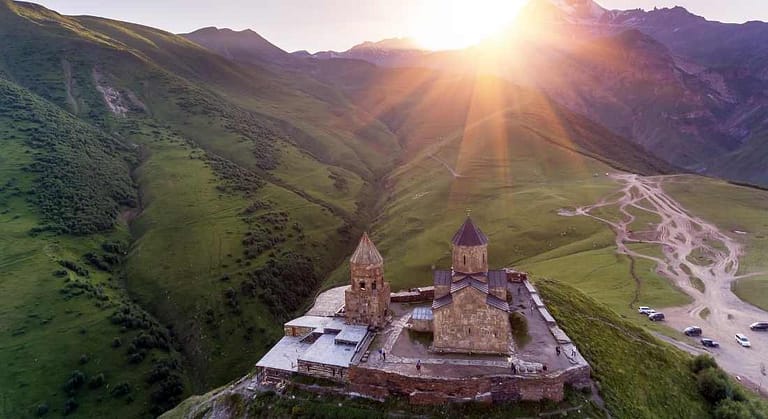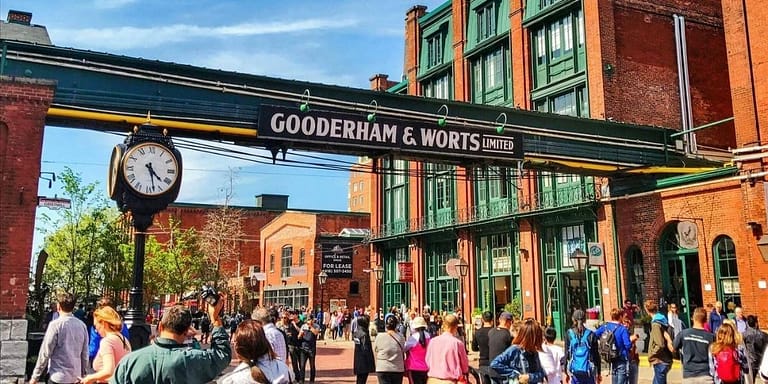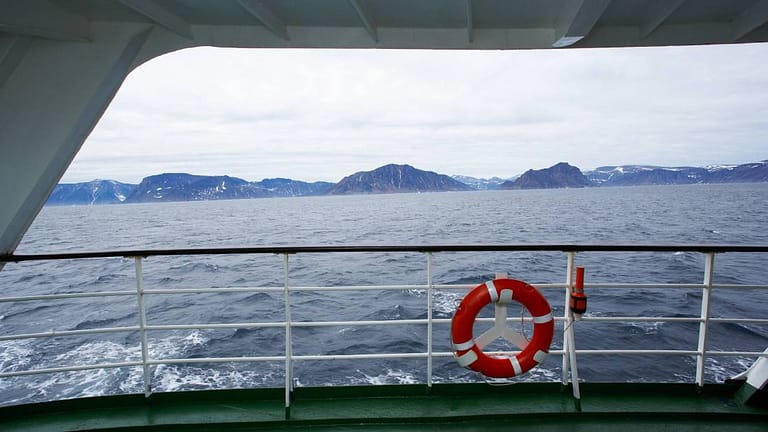The tourism conundrum and the uncertain future of travel
There is no denying that travel has become an integral part of our lives. We travel for holidays, special occasions, and to visit family and friends. Booking flights, trains, cruises and such is as easy as buying clothes and food. So, what happens to the future of travel if that all goes away?
With the whole world on pause due to the global pandemic, the tourism conundrum has everyone talking. Too much of it, and you have an overtourism problem. However, no tourism can be catastrophic to economies worldwide. So how did we get here, and where do we go from here?
Affiliate Disclosure – This post contains affiliate links. If you make a purchase through these links, I may earn a commission. This doesn’t affect your purchases or any fees you may pay for the product or service. Read more in my DISCLAIMER.
The rise of tourism
While travel has always been a part of life for humans, travel for pleasure is a relatively modern concept. In the past, travel was done for necessity. Merchants, soldiers and clergy were the dominant travellers. They travelled because they had to, and it was often a dangerous business.
In times of peace, the wealthy traveled between their numerous properties. Most regular people never left where they were born. During the 17th and 18th centuries, the Grand Tour became a rite of passage for the wealthy, upper-class European men. While the women of affluent families had debutante balls, young men ventured off on an extensive trip around the continent. The intent was to broaden their educational horizons, especially around culture, architecture, language and geography.


Travel for the common folks became a reality around the mid 19th century. In 1841, Thomas Cook led his first excursion for members of the Temperance movement in England. He arranged transport for 500 people from Leicester Campbell Street railway station to a rally in Loughborough. Soon after, excursions included more people and extended to other areas of the British Isles and the continent. The packaged holiday was born, and it changed the future of travel for the common people.
The golden age of travel
While Cook’s packaged holidays changed the future of travel, the concept is still popular today. With the start of the 20th century, new and improved transportation modes made it easier for people to get around. Planes, trains and automobiles became cheaper and more accessible to the masses. Thanks to industrialism, more people started accumulating personal wealth. Labour reforms brought the concept of a set work schedule, and suddenly people had more time on their hands.
The rise of the automobile industry led to road trips as an option for a family holiday. Airlines made Europe and other parts of the world accessible. The post-war world has changed dramatically, and people wanted to see it. Travel for leisure became a common activity. It seems that with each decade, travelling the world has become even more accessible.
In the last 10 years alone, several game-changers brought travel to even more people. Blogs and social media made faraway destinations come alive. Cheap flights, stopovers and loyalty programs encouraged more of us to travel. Companies like Uber and Airbnb helped to revolutionize travel. Tourists no longer had to depend on unreliable and often dishonest cabs. They also got alternatives to expensive hotels. Suddenly, there was competition for tourist dollars, with deals popping up everywhere.
The road to overtourism
Would those living 100 years ago have expected the future of travel to be what it is today? I think not. With population growth, availability of travel deals and accessibility, it’s not surprising that more people want to see the world. Tourists infuse economies with spending on food, accommodations, shopping, etc. Businesses profit and residents benefit from improved infrastructure and amenities to attract travellers. Attracting tourism is then no brainer until it all goes wrong.

Too much of a good thing can quickly go bad. We have seen that happen in many cities. Amsterdam, Barcelona and Venice are all examples of tourism gone bad. Overcrowding, damage to historical monuments, roads and garbage left behind are just some issues. Locals are priced out of affordable housing as landlords see more profit from short-term rentals to tourists. Prices go up, and quality of life goes down.
It’s not hard to see why overtourism is a challenge. We have seen these cities limit access to attractions, outlaw certain types of shops in tourist areas, and enact stricter laws. All in an attempt to manage the crowds that descend there in high season. We have started to see a focus on sustainability and responsible travel. Questioning of industry practices and what can be done to address them. It all seemed like a storm brewing, unbeknownst to all of us. You see, overtourism is an issue until there is no more tourism.
What goes up must come down
Nobody will argue that 2020 started on a positive note. Fires burned in Australia, killing millions of animals and destroying their natural habitats. Displacing people from their homes. Unprecedented floods in Venice have damaged centuries-old buildings and caused chaos for the locals. We all hoped that things would get better, but then Coronavirus showed us that the shit show wasn’t over yet.
As infections spread, countries locked down and closed borders. People halted travel plans as companies scrambled with refunds and cancellations. Airlines, cruise lines, hotels, restaurants, travel and tour companies saw unprecedented losses. Destinations that depend on tourism watched as their economies tanked overnight.
Suddenly, places that battled overtourism are faced with no visitors. Italy, Spain and France, some of the most popular destinations in Europe, are dealing with the highest numbers of infections and deaths. With summer around the corner, the future of tourism is looking bleak. Just like that, everything travel and tourism-related has been brought to its knees.
Has tourism become too easy of a sector? After all, it doesn’t take much to become a part of it. Rent your house, open a restaurant, offer tours, or write/vlog about it. Tourism jobs are always in demand and are easier to obtain than those in other sectors. The challenge is that those jobs usually don’t pay well, offer any security and are often temporary. Despite its strengths, the tourism sector is like a house of cards, and it’s falling apart fast.
The future of travel
As it stands, the future of travel is uncertain. It will rebound, but when exactly that will happen is not clear. Many governments are offering subsidies and trying to keep their economies afloat. However, the reality is that not all businesses will survive. Especially those in travel and tourism.


When we can travel again freely, it depends on several things. A vaccine would be a huge factor in how confident we feel about travelling. Lifting travel restrictions will vary by country. That will play into people’s ability to leave their own country and be able to visit another. All of that will take a few months. It could be six months, 10 or over a year.
So, what can we expect?
Future of travel: here today, gone tomorrow
You don’t have to be an expert to figure it out. Many businesses (across the whole sector) will go out of business. Those that remain will have to compete for customers, providing that they will still want to come. With lost incomes and unclear job security, many will opt to delay travel plans for a while. That will impact what businesses will stay in business and which will go under.
Future of travel: price vs. value
I think that we can expect some deals once the lockdowns are lifted. However, super cheap, unbelievable deals are not likely to happen. There will be a buffer period to bring back customers, but it won’t last long.
More likely, businesses will try to offer more value to customers to entice them. Hotels might offer breakfast without a surcharge to all, maybe event partner with local providers to include tours or deals in the price.
Potentially, we might see airlines doing the same with checked-in luggage. Offering more flexible rebooking options and waiving certain fees. Cruises might come at very affordable prices for those that still want that option. The challenge will be attracting new clients.
Future of travel: global vs. domestic
It’s a pretty safe bet that the future of travel will focus on domestic rather than international travel. Travellers will feel safer sticking closer to home. In many cases, this will also be a cheaper option than travelling abroad.
I’m optimistic that there will be plenty of hard-core travellers who will jump on international travel as soon as possible. However, I think this will be done more cautiously. If you’ve experienced getting sick abroad or have been forced to evacuate, you’re going to look closely at your options.
The tourism conundrum
Tourism will continue to play a polarizing part.
On the one hand, it’s a great way to boost the economy. Tourism creates jobs and brings in tourist dollars. Many businesses rely heavily on visitors for income, which often feeds into other parts of the economy. On the other hand, it can overload the infrastructure and put pressure on existing resources if not managed. It creates tension among the locals while diminishing the visitor experience.
So, how do we balance the scales? What does the future of tourism look like?
I think each destination will have to look closely at its practices. It’s a great opportunity to reset and develop strategies to manage the visitor experience. Sustainability, from continuing operations to improved environmental responsibility, will have to be addressed. Visitor expectations will also play a role, and destinations will have to respond accordingly.
We could see a continued shift in online/virtual attractions that allow visitors to enjoy the experience without physically being there. We might see better coordination of offerings (hotel/tour combos mentioned above) to attract visitors and extend their stays.
Tour companies, hotels, airlines, cruise lines, and other travel-related businesses will have to look closely at their operations. Many will be making future travel decisions based on how they treated them and how they treated their employees. It will all matter, and companies should be ready. The future of travel depends on it.
It’s unavoidable that there will be changes in how we do tourism and how we travel. Tourism has always been a resilient sector, and it will bounce back. Travel can be addictive, and there are many people out there living for a chance to see the world. We will travel again.









